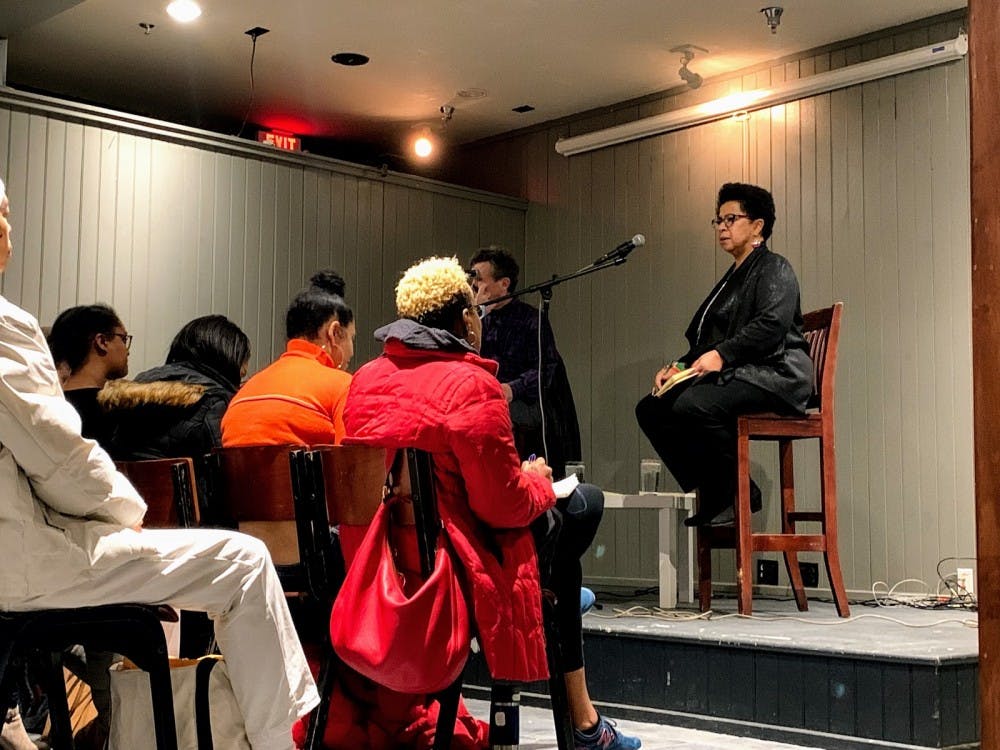Activist and historian Barbara Ransby discussed her upcoming book, Making All Black Lives Matter: Reimagining Freedom in the Twenty-First Century, which examines the future of the Black Lives Matter (BLM) movement, on Wednesday at Red Emma’s Bookstore and Coffeehouse.
Ransby is a professor at the University of Illinois and has studied the history of how activist movements have fought the oppression of black people in the U.S. for the majority of her career. She has been following the BLM movement since its inception, and called herself a “yelder,” or young elder, of the movement.
In her analysis of the social and organizational aspects of BLM, Ransby endorsed the movement’s ties to earlier social rights movements while arguing that BLM is in many ways distinct from these.
Ransby’s earlier work focused on Ella Baker, a civil rights activist in the 1900s and worked alongside Martin Luther King Jr., and the Black Freedom Movement. She explained that the BLM movement stems from the Black Freedom Movement and other intersectional ideologies.
“A unique aspect of this movement is grounded in black radical feminist intersectional politics. It is the first time ever in the history of the black freedom movement in this country that black feminists, and even queer people, were at the center of a movement that didn’t simply have to do with women or gender,” she said. “It was informed by a certain set of sensibilities and a certain worldview that changed the character of it significantly – and for the better.”
Unlike the Rosa Parks boycott, Ransby told the audience, BLM does not adhere to politics of respectability. The movement is “unapologetically left” and “unapologetically black.” Ransby believes that this allows BLM the flexibility to choose which causes it promotes.
According to Ransby, the people of BLM also have the advantage of learning from failed social revolutions and modifying their actions in order to be more successful activists.
Furthermore, Ransby pointed out that in line with black feminist readings and strategies of the last century, BLM has for the most part led a decentralized campaign of collective action. She explained that while there are no leaders making speeches or organizers leading marches through Washington, this has not limited the scope of the movement.
Freshman Sylvana Schaffer attended the talk and was interested in Ransby’s comparison of BLM to other activist movements.
“I had never thought about the differences in Black Lives Matter’s tactics as compared to most social movements,” she said. “But after hearing from Professor Ransby, I started thinking about all the ways the movement is unique—and there certainly are a lot.”
Freshman Fausto Alvarez also attended the event and said that he was particularly interested in Ransby’s idea of a decentralized movement.
“The fact that there are no leaders emphasizes the change in the way which movements can and, probably, are to occur in the future. The internet has allowed for a sort of hive mindset in which a community or group of people can easily come together to fuel a movement,” he said.





